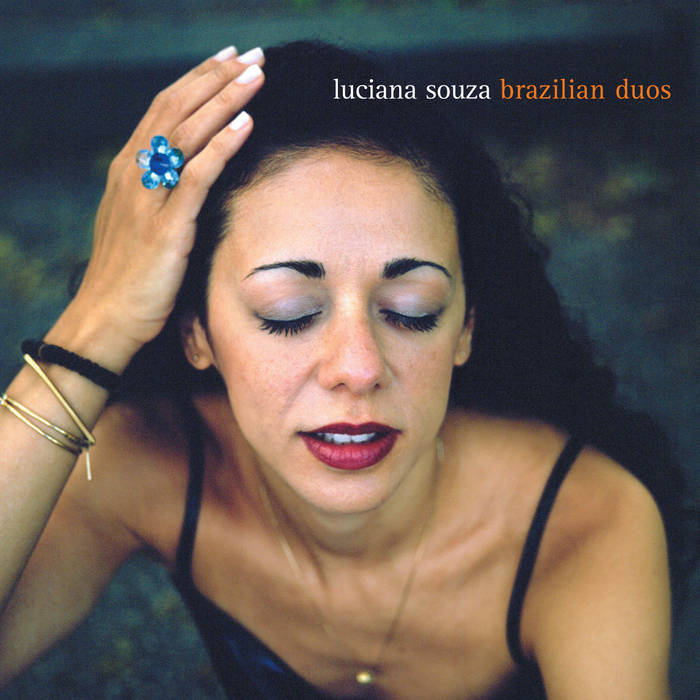Luciana Souza, 'Brazilian Duos' (2002)
At the end of Playing Changes is a list: The 129 Essential Albums of the Twenty-First Century (So Far). I organized these by year, and then alphabetically by artist name. I'll be running them down here, in that order. (No one appears more than once as a leader, though there’s ample overlap in personnel.)
Luciana Souza emerged as a figure of both high-literary and deep-musical ambition, and could remarkably claim both as her birthright. Hailing from São Paulo, Brazil, she is the daughter of two notable artists: the guitarist and singer-songwriter Walter Santos and the poet-lyricist Tereza Souza. She recorded jingles and commercials from early childhood, amassing hundreds of studio hours before she eventually found her way to Boston, for degrees at the Berklee College of Music and the New England Conservatory.
I first experienced Souza's voice as a splash of color on albums by musicians in that circle — notably Danilo Pérez's Motherland, and some contemporaneous releases by saxophonist Andrew Rathbun and composer-arranger Guillermo Klein. Somehow I missed her 1999 debut, but took careful note of an inspired follow-up in 2000, The Poems of Elizabeth Bishop and Other Songs.
Then, in what felt both like a return to her roots and the subtle reinvention of a format, Souza released Brazilian Duos. A sparse, full-hearted take on the magnificent voz e violão tradition, it featured several brilliant guitarists — her father, along with Romero Lubambo and Marco Pereira. The album finds Souza paying homage to her cultural foundation, while firmly reserving the right to dash off in any direction of her choosing.
''People say, 'Oh, you're so eclectic,' and I usually say that I really don't look at styles anymore,'' she told Terry Teachout around the time of the album release, in a profile for the New York Times. ''I recognize, well, it's classical music or contemporary this or jazz that, or Brazilian, but I'm not worried about that. Only I don't want to be categorized as 'the Brazilian singer.' I look, I sound, I am, I wouldn't want to escape that — Portuguese is a delicious language to sing in, but I didn't want to be just that."
Still, it's glorious when she does embrace this music — as on the album-opening "Baião Medley." It stitches several songs together: "Respeita Januário" and "Qui Nem Julió," by Luiz Gonzaga and Humberto Teixeira; and "Romance," by the contemporary pop songwriter Djavan. Souza's composure, as always, is a marvel.
For more information about Luciana Souza, visit her website.


